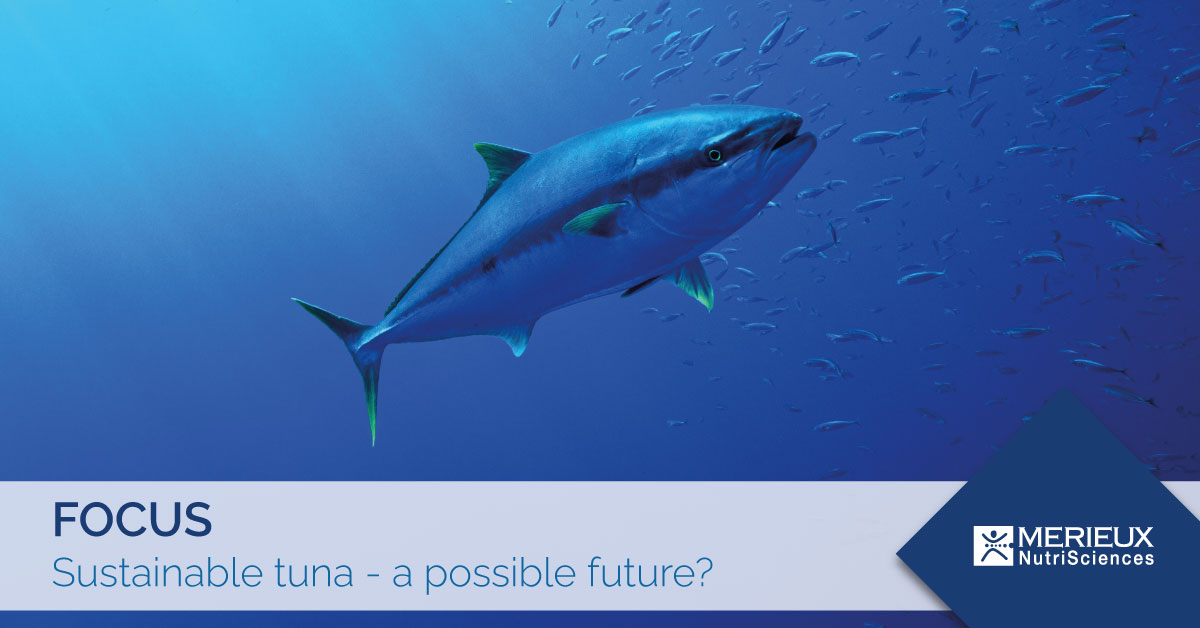SUSTAINABLE TUNA FISHING - A POSSIBLE FUTURE?

Tuna is one of the most popular foods in our kitchens and one that we often buy without asking too many questions about the preservation of this important marine species. Being present in many dishes, from sushi to sandwiches and poke, tuna is one of the world's favourite fish. But are our current tuna fishing habits sustainable?
INTERNATIONAL SCENARIO
According to a study published by Fisheries Research, a scientific journal specialising in the publication of articles on fishery science, technology and management, the answer could unfortunately be negative.
Global catches have increased by more than 1000% in the last 60 years as a result of a massive expansion in industrial fishing driven by a sharp rise in demand.
Data indicate that this expansion, which has reached up to six million tonnes in one year, is now operating beyond the capacity of the system. It has overexploited populations, both of tuna and of other major fish species, and has expanded to the point where there are no new fishing grounds left to explore.
In this difficult context, what parameters can the consumer consider in order to make sustainable choices when buying tuna?
SUSTAINABILITY LABELS
First of all, at international level there is the quota system, according to which each country must respect a quantitative limit, i.e. fishing no more than a defined number of tonnes of tuna at specific times of the year: in Italy, for example, this period runs from June to October.
There are also certifications that guarantee that producers have used sustainable methods for tuna fishing. The best known is undoubtedly the MSC certification, which stands for Marine Stewardship Council, a non-profit organisation that works to promote sustainable fishing. This standard was developed by a wide range of experts including scientists, fishing industry representatives and regulators.
In order to achieve and maintain certification, a fishery must ensure that:
- fish stocks are sustainable: there are enough fish left in the sea to reproduce themselves potentially infinitely;
- environmental impacts are minimised: fishing operations must be carefully managed to maintain the structure, productivity, functionality and diversity of the marine ecosystem;
- fisheries are managed efficiently: fisheries must be managed responsibly in accordance with applicable laws and must be based on a management system that enables rapid response to exogenous changes.
These parameters form the basis of the assessment, which is carried out by independent certification bodies that conduct annual audits to verify compliance with the requirements.
Another popular sustainability label is Friend of the Sea. To achieve certification, companies must operate according to specific criteria:
- use fish stocks that are not overexploited:
- eliminate impact on the seabed;
- choose selective fishing methods for not catching endangered species and have a maximum of 8% waste;
- comply with standards;
- improve energy balance and optimise fuel efficiency;
- have a sustainable waste management and social responsibility profile.
Finally, the Dolphin safe label, created to certify tuna caught with techniques that did not endanger dolphins, can now be applied to almost all canned tuna sold in Italy, because the fishing techniques in use do not threaten dolphins.
IS ALL THIS REALLY SUSTAINABLE?
Although these certifications still represent the best possible guarantee for sustainable choices, they have been criticised over time by some non-governmental organisations working in the field of environmental protection with regard to the real guarantees offered for the protection of fish species.These criticisms are based on the assumption that the fish presented as sustainable is not always so, because in some cases it may come from over-exploited stocks or where fishing systems with a high environmental impact have been applied (for example, trawling instead of more "artisanal" systems such as pole-and-line fishing, whose one-to-one ratio prevents catching the huge quantities harvested by large vessels and avoids incidental catches, i.e. dolphins, sharks, sea turtles, etc).
Certification undoubtedly helps consumers to recognise products that are heading in the right direction, but the criteria are not always strictly applied and none give an absolute guarantee of providing 100% sustainable fisheries. There is a need to go further, and it is up to the companies themselves to make an increasing commitment to sustainability and to clearly communicate their sustainability criteria. One sustainable practice, in addition to the previously mentioned low environmental impact fishing systems, is the choice of different types of species such as skipjack tuna (Katsuwonus pelamis), which may be less suitable for some uses but are less at risk than more famous species such as bluefin and yellowfin.
In conclusion, despite the uncertainties still surrounding this issue, the consumer remains in possession of a great power, namely the possibility (as well as the will) to inform himself, in order to make the best ethical choice for an increasingly sustainable future.

